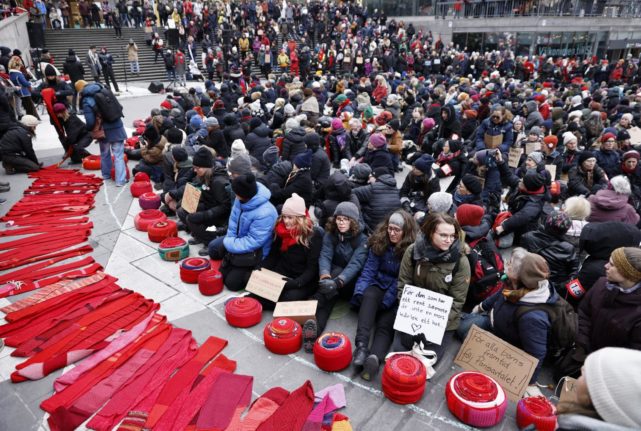In 2018, the Swedish government made it possible for local authorities to create so-called environmental zones to improve air quality. Stockholm will now be the first city in Sweden to introduce the strictest zone, class three, which bans nearly all diesel and petrol cars.
“Today, the air in Stockholm means that infants’ lungs are less effective and adults die early,” transport councillor Lars Strömgren said in a statement, citing a 2022 study from the Karolinska Institute. The study found that children who grow up on roads in the capital with particularly high emissions have worse-than-average lung capacity when compared to other children, from as early as six months old.
“This situation is completely unacceptable. We need to limit the dangerous emissions from petrol and diesel cars, and that’s why we’re introducing a class three environmental zone in one part of the city centre.”
On streets with a class three environmental zone, certain vehicles are banned, meaning, as a general rule, only electric cars and low-emission gas vehicles are permitted. In terms of heavy goods vehicles, low-emission hybrids are also allowed to enter the zone.
There will be some exceptions, such as emergency vehicles, other vehicles used in healthcare, and vehicles where a driver or passenger has a disabled parking permit.
The new environmental zone will be implemented in stages, starting on December 31st, 2024, with the area inside Kungsgatan, Birger Jarlsgatan, Hamngatan and Sveavägen. This will also include the entrance and exit of the Klaratunneln by Mäster Samuelsgatan. The zone encompasses 20 city blocks and covers around 180,000 square metres.
“The environmental zone is being introduced in an area where there are a lot of pedestrians and cyclists, where the air quality needs to improve. It’s also an area of the city centre where we can see high commitment to electrification, where there are key actors who can be a driving force in this transition,” Strömgren said.
“That’s why this is a good place to start.”
A number of property owners and transport companies in the area in question are already active in the Vinnova project, which focuses on developing more sustainable deliveries, among other things. Electric transport vehicles are quieter and are therefore able to be used at night, unlike traditional vehicles, which are louder.
The environmental zone will be extended in a second stage, which will be proposed in 2024 and voted on in the first half of 2025.



 Please whitelist us to continue reading.
Please whitelist us to continue reading.
Member comments